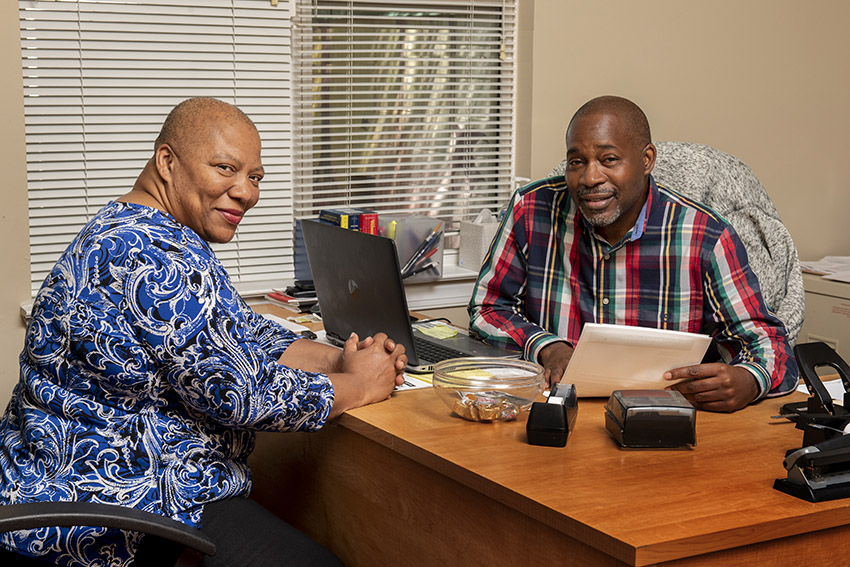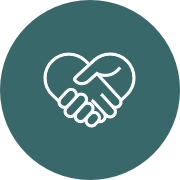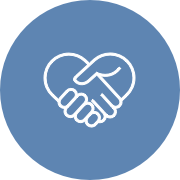RHD North Carolina Wake County Bridge Housing
Danina had an announcement to make.
Asked about how RHD North Carolina’s Harrington Wake County Bridge Housing Program was helping her, Danina had the perfect answer – with support from the Harrington Wake County Bridge Housing staff, she’d acquired her own housing and was moving in next month.
“I knew this was my opportunity; to have the support of the staff, to have case management to help guide me in my search for housing was phenomenal,” Danina said. “I am forever grateful. It’s an amazing program. They keep their word; they say they’ll help you and they help you. I feel privileged to have this experience.
“I was in a dark place when I came here. It was very, very hard. I felt hopeless. Now I have a foundation, I have stability, I have support. I have hope.”
Harrington Wake County Bridge Housing provides case management to residents who have been identified as being homeless or at risk for homelessness, supporting people as they secure permanent housing in a one-to-five-month period. A variety of supports help prepare residents for transition to permanent housing. It is the only “bridge” program — helping people transition from a homeless shelter to their own housing — in North Carolina.
Harrington Wake County Bridge Housing admitted its first client May 9, 2018 — and saw that client attain housing in one month. To date, Harrington Bridge has helped 34 people attain housing.
“We work together,” Program Director Sean Porter said. “Trust isn’t always easy for the people we support, but we work hard on that. Because if they trust us, and they’re willing to work with us, we will get them housing. I guarantee people that. We make that promise, and we keep it.”
Harrington Wake County Bridge Housing is one of a thriving array of human services programs at RHD North Carolina, which provides residential supports and services for people experiencing homelessness, adults with diagnosis of intellectual and developmental disabilities, serious and persistent mental illness and adults with dual diagnosis of mental illness and developmental disabilities. Individuals live in a variety of settings, but every RHD program focuses on a person-centered approach, and care is given to working with individuals to create homes and attain the highest quality of life possible.

After coming to Harrington Wake County Bridge Housing from a local homeless shelter, Janie gained employment with Go Raleigh, the city’s bus service, and attained her own housing.
“It is a great opportunity to be here; without this place I don’t know where I’d be,” Janie said. “The staff is very supportive. They’re respectful of people. They create a community here; we’re all going through similar situations, so there’s almost a fellowship with the other residents. You don’t feel like you’re going through this alone.
“This place is very important. It’s essential. This is a great place.”
Janie also came to Harrington Wake County Bridge Housing from a homeless shelter. Residents have their own rooms, as well as community spaces to work, read, and search for jobs and housing. There is also a garden in the rear of the residence, where people socialize, barbeque, or just sit in the shade of a sprawling tree and relax.
“As a woman coming out of a shelter, I appreciated how much work the staff did to create a safe space,” Janie said. “They’re very respectful. Mr. Porter is an amazing person; he’s so in tune with the needs of the residents here. He’s supportive, and kind. You feel like you can talk to him without feeling judged.”
That spirit of trauma-informed care is essential at a program like Harrington Wake County Bridge Housing, Porter said.
“We understand people are coming from a tough situation,” Porter said. “We’re very respectful of that, understanding what people have been through. This is a chance to start over again; we tell people that starting right now you can do what you want to do.
“With the resources RHD brings to service, we’re able to work with people in very different situations. We have so much to offer, and we’re able to adapt to people’s needs. We have the freedom to work with our clients to find the best situation for them. Our case manager is able to work one-on-one with people, and create an individually customized plan.
“Every single person who comes here is different, and tells a different story. But whatever people’s needs are, we work to meet them.”



